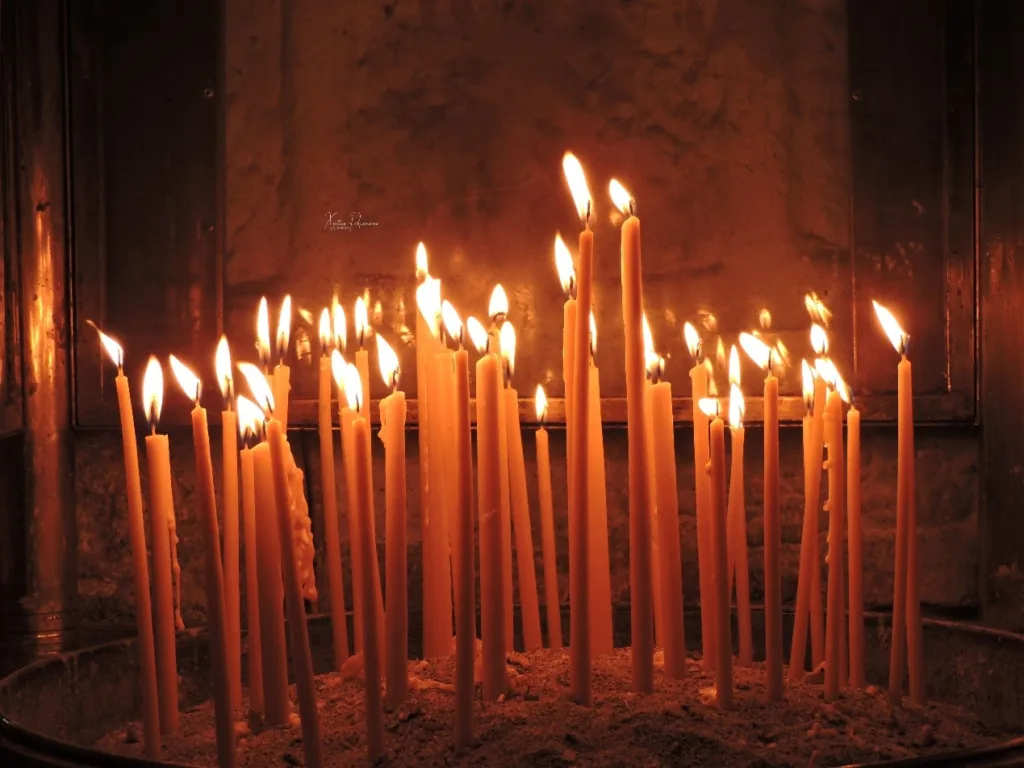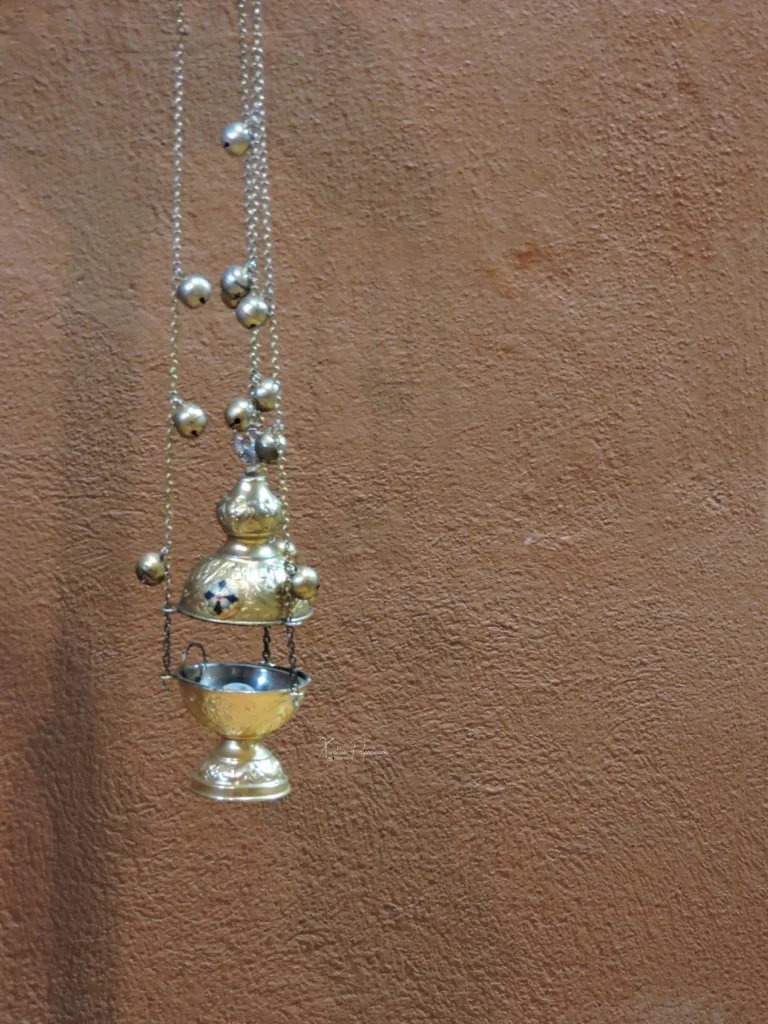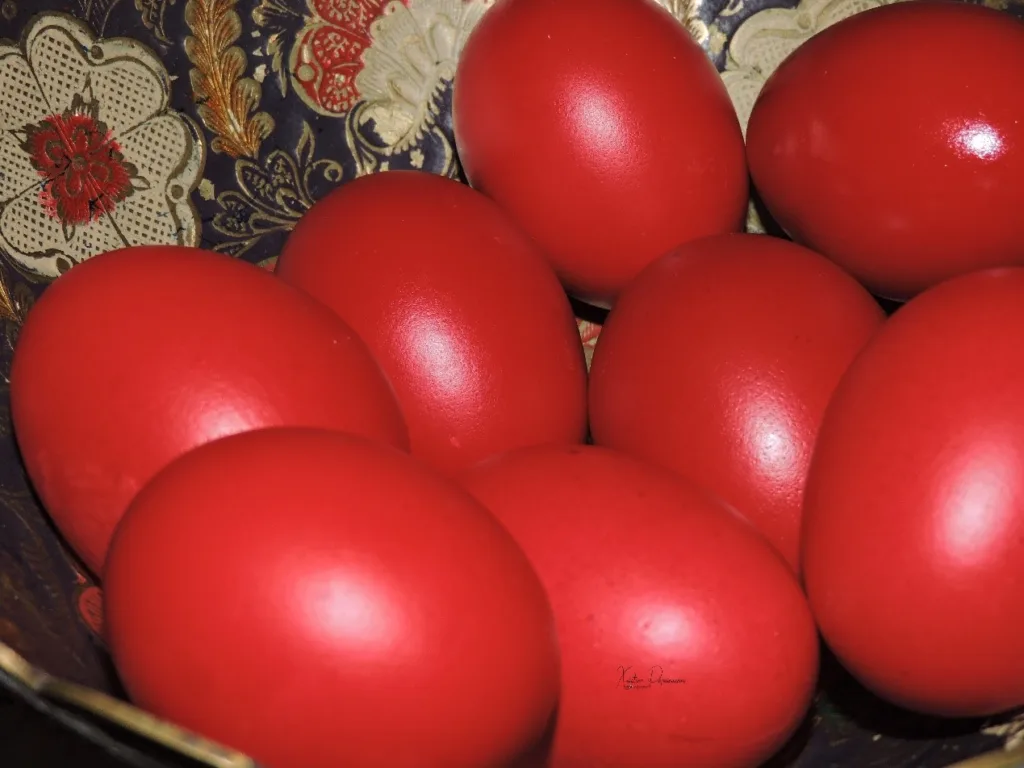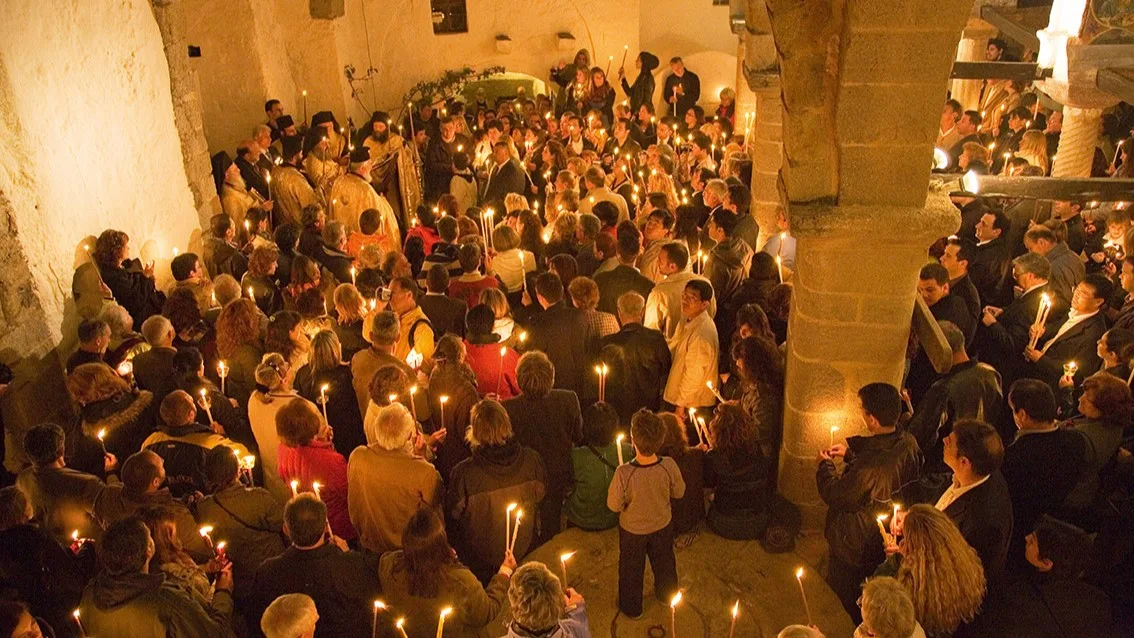By Marina Siskos.
Orthodox Easter is one of the hallmark religious celebrations as it honours the Resurrection of Jesus Christ and by extension, the victory of life over death. At the same time, in the Mediterranean Greece, Easter heralds the arrival of springtime, therefore Easter celebrations are filled with the earth’s symbols of life and revival: wisteria decorations, inclusion of eggs in the culinary customs, spring colours and of course, the holy light.
Palm Sunday omens the initiation of the Holy Week. Beyond the religious significance, Easter is heavily ascribed with much cultural, symbolic and folklore meanings, which vary among the different provinces. All of those are united by the victorious message of life, resurrection and hope. Yet the unique ways that Easter is honoured in different areas of Greece deserves a tribute:
The ritual of the Holy water sink
Holy Thursday in Patmos, finds the locals and the visitors observing the ritual of the Holy water sink. The great march starts from the monastery of St. John the Theologian, and heads to Ksanthos’ Square (πλατεία Ξάνθου), where the minister washes the feet of twelve monks, alluding symbolically to Jesus’ corresponding act of humility and servitude.
Then, on Good Friday, the narrow pathways and the yard of the monastery are ornated with lilac blossoms, making the processing of the Epitaph through the winding pathways of the island, a unique, solemn experience.

The burning of Judas
In the Orthodox Christian folk, the “clan of Jews” is considered guilty for the Crucifixion of Jesus. Thus, people have established and observe, to this day, the “burning of Judas,” mainly in the province of Thrace. People burn an effigy of Judas, signifying the “burning” of his prevalent character qualities, namely, avarice and cowardness. The burning of Judas takes place on the night of the Resurrection, or alternatively, on Easter Sunday, whereas rarely, it might be observed on the Good Friday. It is believed that the custom of Judas is rooted in ancient, pagan traditions, where people would burn the effigy-personification of the winter in anticipation of springtime. Similar customs are observed in areas of the central and northern Europe.

Symbols and folklore of Greek Orthodox Easter
Easter in Greece is colourfully ornated with the hues of early spring. Many symbols are closely associated with Easter.
The egg has been, cross-culturally, a symbol of fertility, sometimes a symbol of the universe and in any case, it alludes to perfection, wholeness, and fulfilment. Thus, the symbolism of the eggs has provided the perfect case for the signification of the latent life that awaits to be born, from the inside and with the breaking of the cage- the eggshell alludes to the grave.

Fire, in its many variant forms during the celebration of Easter, has been ascribed with one prevalent symbolism. Beyond its elemental force, from the ancient civilisations to modern-day religions, fire holds a special place in sacred ceremonies, signifying the spiritual illumination and the divine connection. At the same time, fore denoted the start of a new life, the purification and the celebratory destruction of the old-as is the case with the burning of Judas.
Holy days are landmarks of memory that bring the past to the lived experience of today, formulating the unique identity of each generation. Memory structures the self, but it is activated in a social setting. All rites, symbols and meanings of Easter carry their value only as long as they are honoured in a communal, collective spirit and this, the element that holds societies and preserves their memory.
With information from: Καπετάνιου, Λ. (2023). Πάτμος. Το Πάσχα με όλη του τη μεγαλοπρέπεια. Η Καθημερινή. 11.04.2023. Πάτμος: Το Πάσχα με όλη του τη μεγαλοπρέπεια | Η ΚΑΘΗΜΕΡΙΝΗ (kathimerini.gr)

